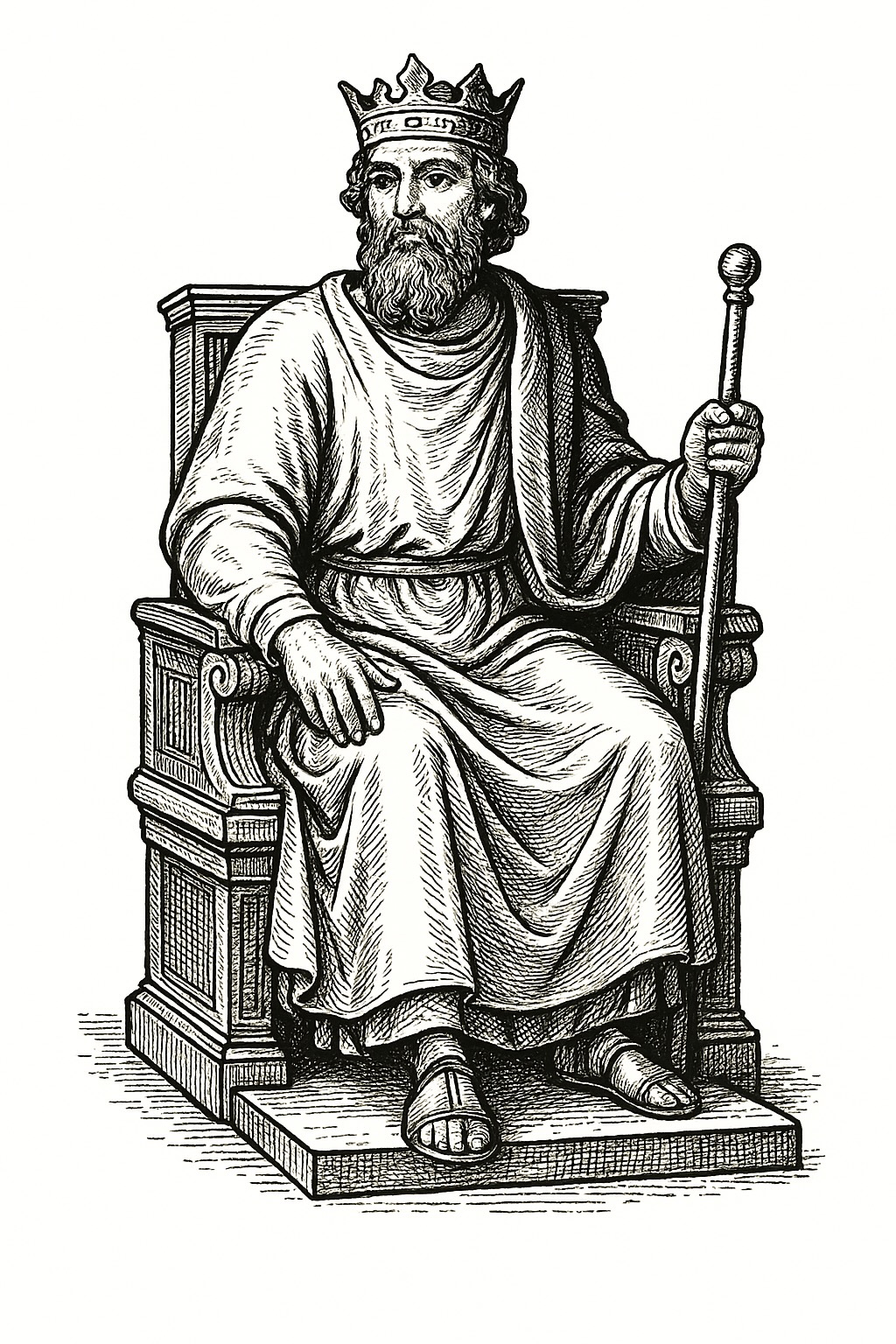StorylineSample


The Monarchy
1050–930 BC
The books of 1 & 2 Samuel, 1 & 2 Kings, 1 & 2Chronicles, Psalms, Proverbs, Song of Solomon & Ecclesiastes
An important note at this juncture in our sweep of the Scriptures together:
The books of 1 & 2 Kings and 1 & 2 Chronicles are closely related, each recounting God’s dealings with the succession of Israel’s kings. But the books of Kings are Israel’s written history before the exile, while the books of Chronicles are a regathered history written for the returning remnant of Israel after the exile.
~ Before Israel had kings, they were governed by periodic judges and finally, the prophet Samuel.
The monarchy includes those years when Israel was a united nation and ruled by three successive kings: Saul, David, and Solomon.
In a time of corruption and weak leadership, Samuel rose as a prophet and judge, calling the nation back to God. Israel demanded to be like other nations and asked for a king—until this time God was their King. Despite Samuel’s warnings, they persisted, and God granted their request.
Saul is anointed the first king, and though he starts with promise, his pride and disobedience lead to his rejection by God.
God then sends Samuel to Bethlehem to anoint David as the next king of Israel. David’s rise to power is one of the most dramatic stories in Scripture, showing God’s hand guiding a humble shepherd to Israel’s throne, a journey through persecution and peril spanning fifteen to twenty years. David, a man of worship and humility, is known as the most important king of Israel. A poet and psalmist, he wrote some of the book of Psalms. God made a covenant with David—
God would establish David’s throne and kingdom forever through his offspring. (2 Sam. 7:8–16, Ps. 89:3–4)
The Lord chose Solomon, the son of David and Bathsheba, to succeed David as king. Solomon wrote much of the Bible’s wisdom literature, including Proverbs, Ecclesiastes, and Song of Songs. He built the first Temple in Jerusalem, patterned after the Tabernacle. Filled with the Shekinah glory of God, this Temple became Israel’s central place of worship and testified to God’s presence among His people.
It is interesting to note some of the ways the lives of these monarchs intermingle in the storyline:
Saul and David
- David soothed King Saul with his harp when Saul was tormented by an evil spirit (1 Sam. 16:14–23).
- David appeared on the battlefield where Saul’s army faced the Philistines and defeated Goliath (1 Sam. 17).
- Saul’s son, Jonathan, heir to the throne before David was anointed king by Samuel, became David’s closest friend (1 Sam. 18:1–4; 20:16–17).
- Saul gives Michal, his daughter, to David in marriage (1 Sam. 18:20–21).
David and Solomon
- David desired to build a permanent house of worship in Jerusalem, but God did not allow it because he was a man of war. (1 Chron. 22:7–8)
- Instead, David stockpiled materials and commissioned his son Solomon to build the temple. (1 Chron. 22:2–5, 14–16; 28:11–19; 29:1–5)
- In Proverbs, when Solomon reflects on being tender and guided as a boy, he is speaking of his father, David, and his mother Bathsheba, who wove their wise influence into his life. (Pr. 4:1–4)
~ After a monarchy spanning about one hundred years, Solomon’s son Rehoboam came to the throne.
Significance
- Saul was a great warrior, but he fell into pride and fear—eventually insanity—choosing disobedience and calling it sacrifice.
- David is known for being a man after God’s own heart. Oh, let us pursue that distinction!
- When God invited Solomon to ask for anything, he humbly requested wisdom to govern Israel. God granted him unmatched wisdom. It is wisdom to ask for wisdom.
- All three kings started out strong and committed to God, but fell into sin. Both Saul and Solomon ended their reign in disobedience to God. David alone returned to God with humility and sincere repentance. We all sin in many ways. We are all invited to repent and return to God.
About this Plan

Just as shelves bring order to a closet, this Bible plan builds a powerful framework to clarify and connect our understanding of the events of the Bible as a whole. Each day becomes a shelf—organizing epic moments, unforgettable characters, the unfolding drama of God’s Word. Together, we will step into His unrelenting redemptive plan as our own story is woven into the Lord’s glorious plan.
More
Related plans

Deep Roots, Steady Faith

Parenting Through God’s Lens: Seeing Your Child the Way God Does

Marry Me

The Father Lens: Helping Your Kids See Who God Is Through Who You Are

The Invitation of Christmas

Even in the Shadows: Living With Depression

Where Are You? A Theology of Suffering

Real. Loved. Strengthened: 7 Days With God

The Single Season
